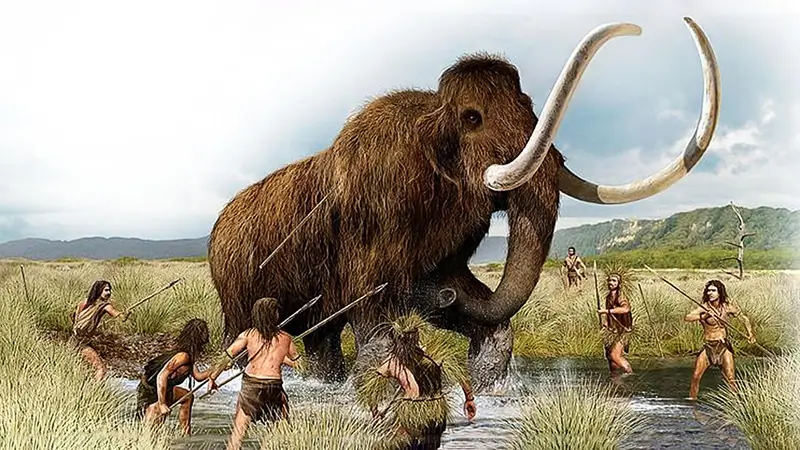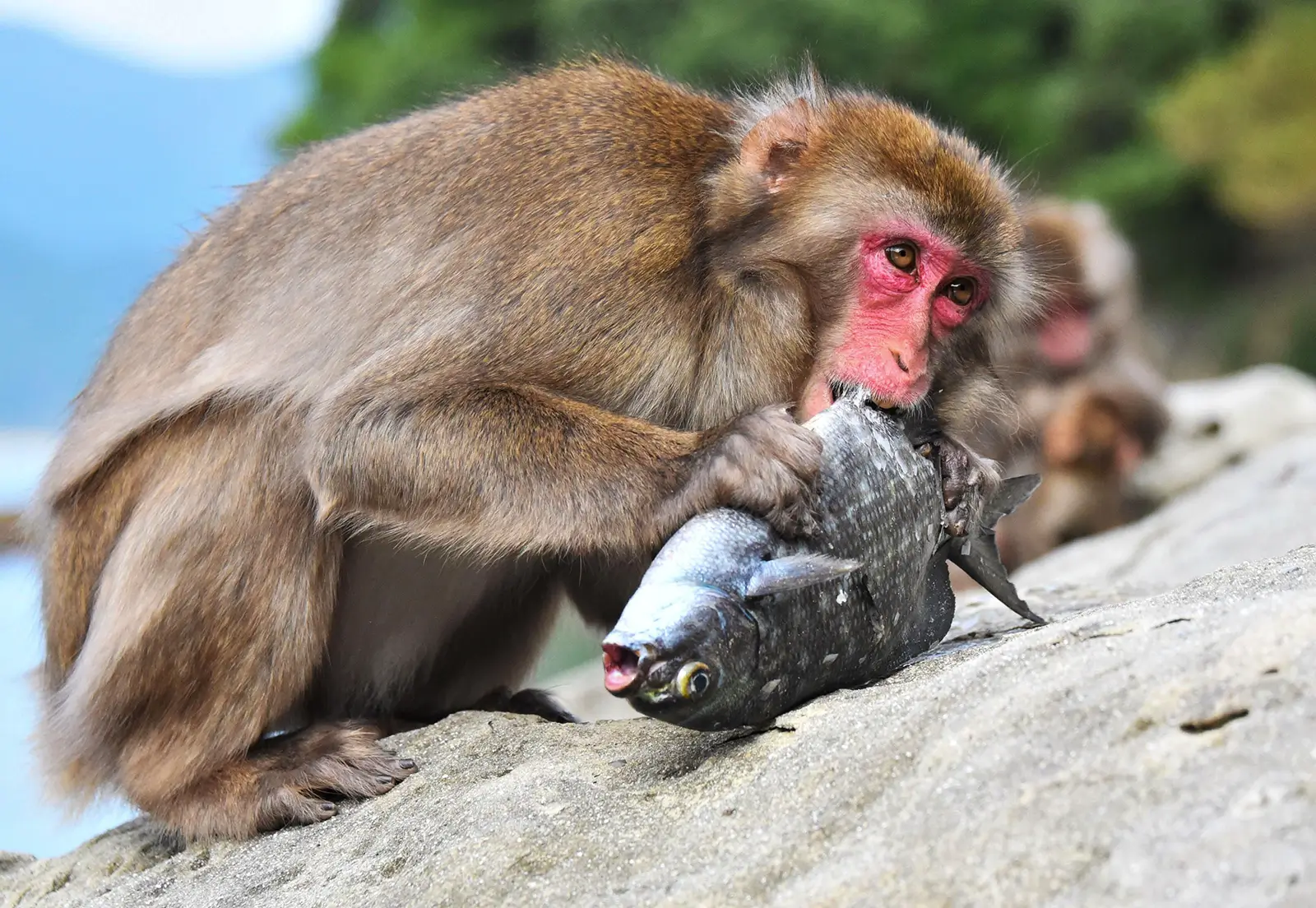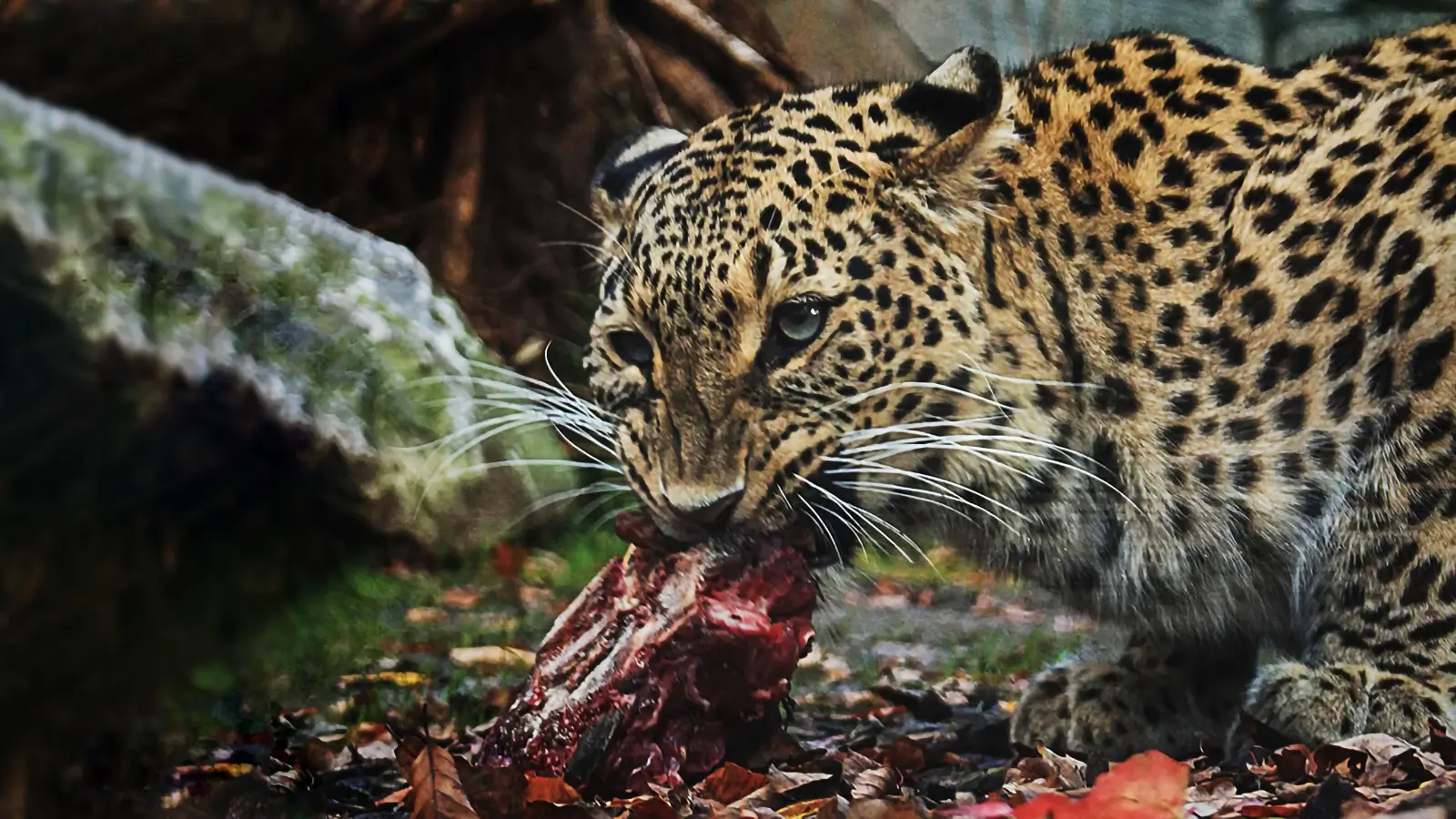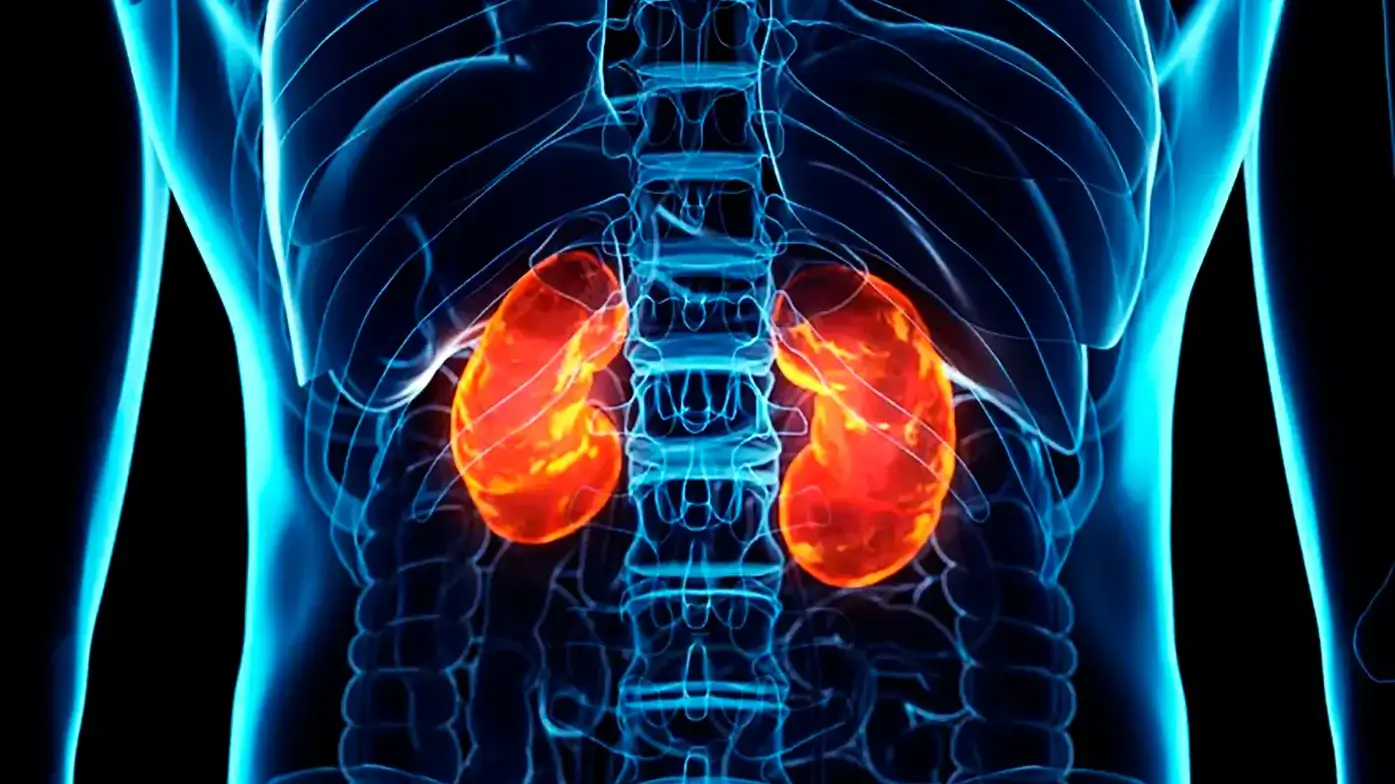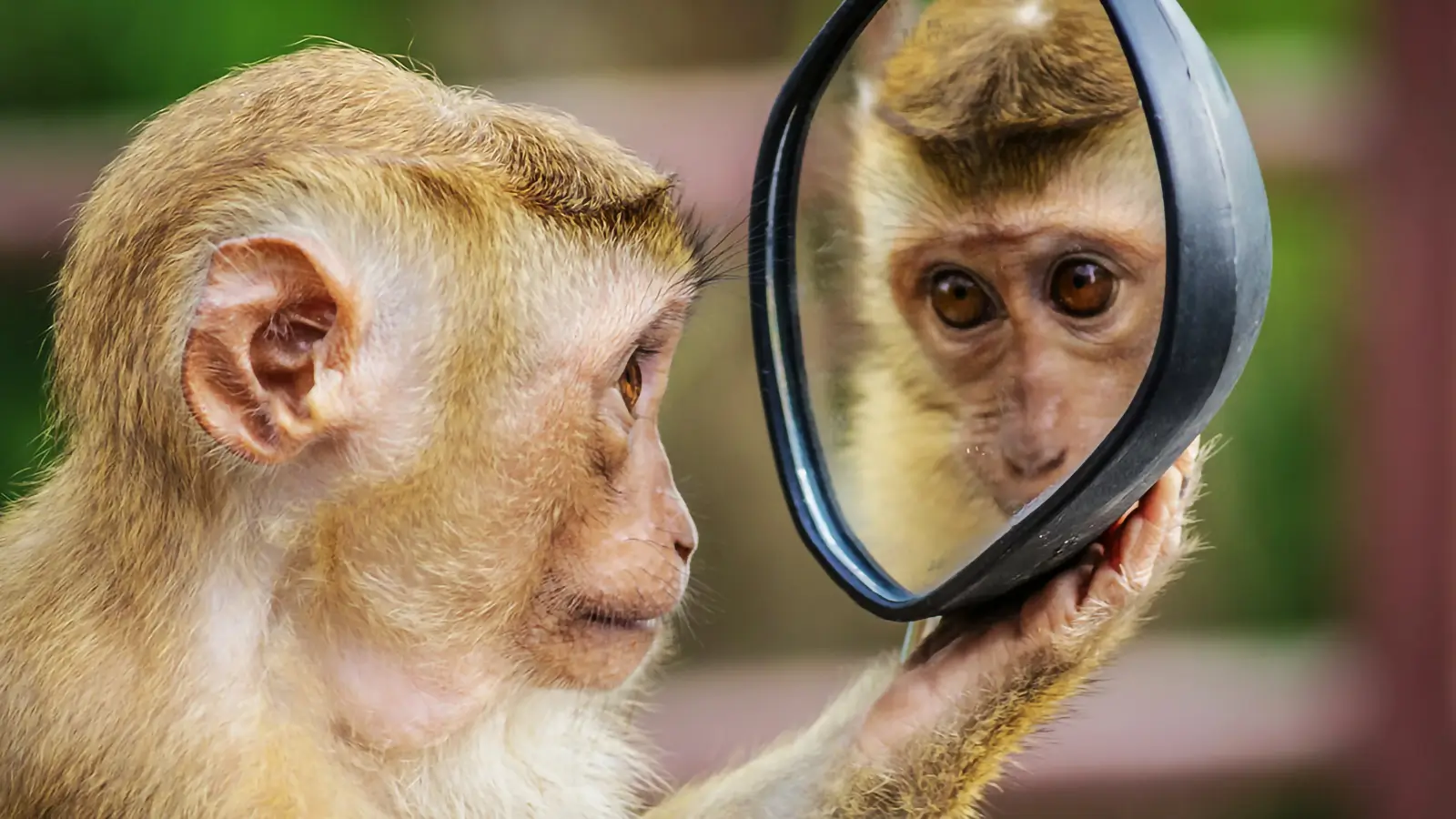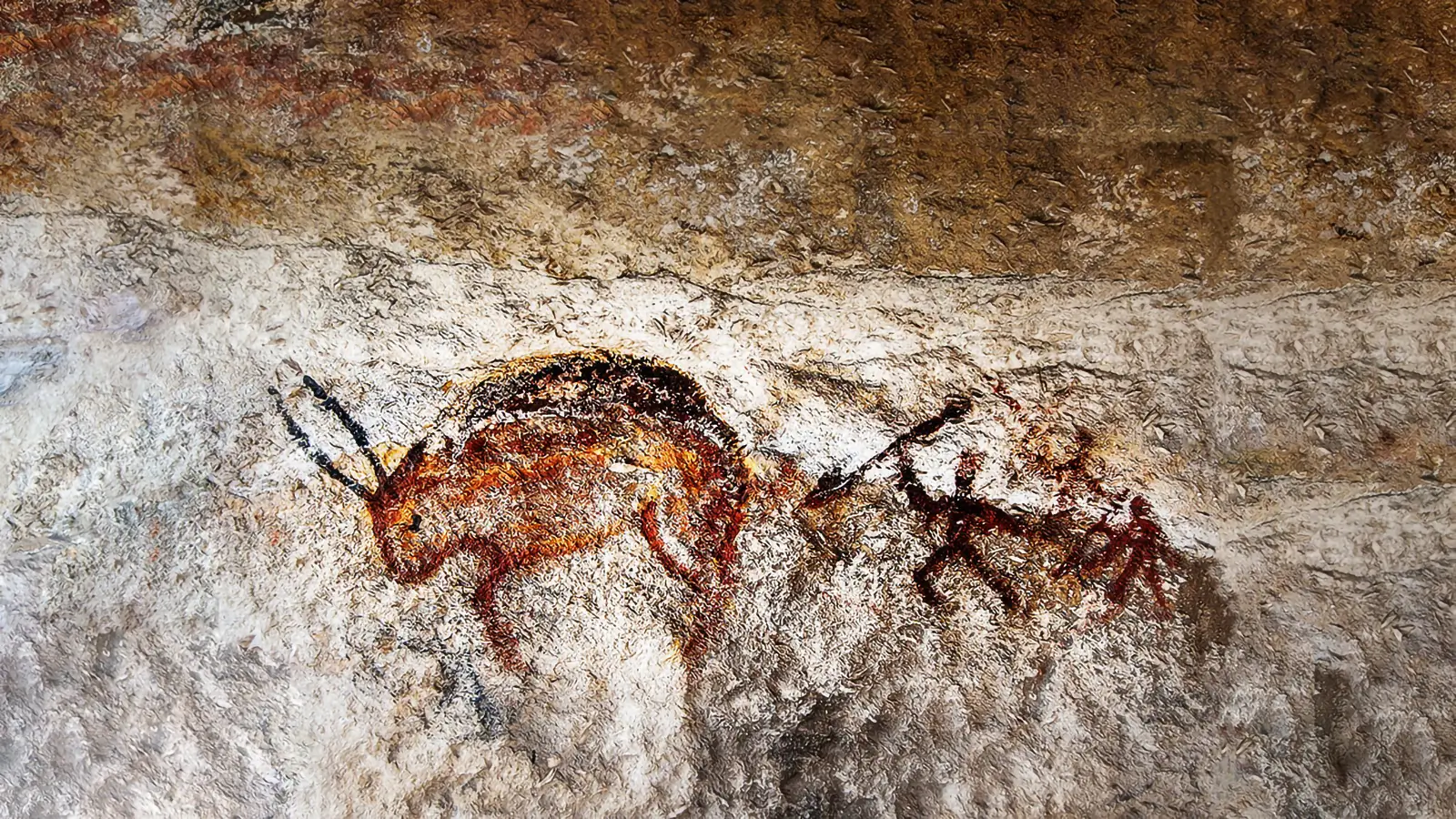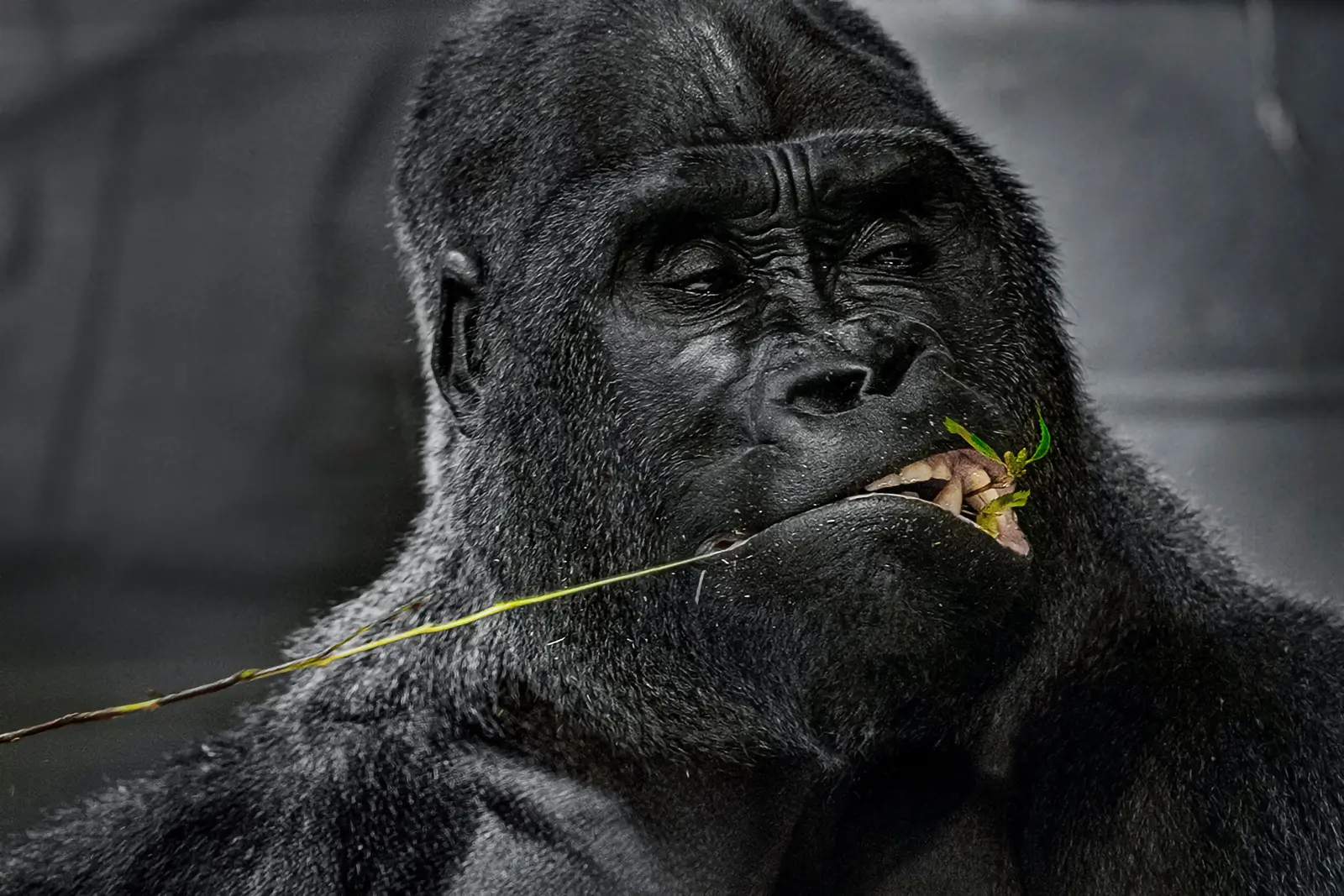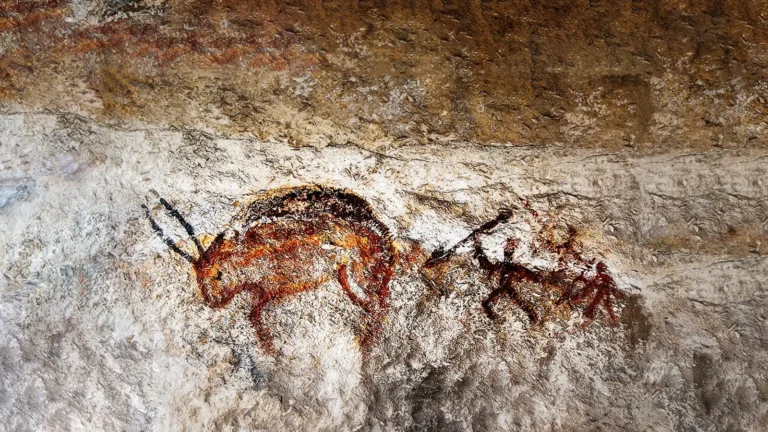Веганские Неандертальцы? Правда о Настоящей Неандертальской Диете
Типичное изображение неандертальцев изображает их убивающими шерстистого мамонта. Однако зубной налет рассказывает другую историю о рационе неандертальцев
Милош Покимица
Автор: Милош Покимица
Медицинская Обзор: Доктор Сюйинь Ван, Доктор Медицинских Наук.
Обновлено 9 июня 2023 годаСтереотипное представление о неандертальцах - это их убийство шерстистого мамонта. Существуют археологические данные, подтверждающие тезис о том, что рацион неандертальцев был плотоядным даже на уровне белых медведей и включал в себя пищу, богатую крупными травоядными, такими как шерстистый мамонт, северный олень и шерстистый носорог.
Однако зубы неандертальцев говорят о другом. Зубной налет используется для анализа крахмала и белков, которые сохранились в налете. При изучении характера износа зубов можно сделать вывод о разнообразном питании. Диета также варьировалась в зависимости от места обитания со значительными региональными различиями. В некоторых районах, как показывают исследования, неандертальцы употребляли в пищу преимущественно растения, возможно, в том числе и лекарственные.
Значительное открытие было сделано учеными при анализе останков неандертальцев из Эль-Сидрона (Испания). Неандертальцы из Эль-Сидрона не имели никаких признаков употребления мяса. Не какое-то небольшое количество, а полный круглый ноль. Вместо мяса они получали калории из растительной пищи, собранной в лесу. Зубной налет был заполнен остатками различных видов орехов, грибов и мха. Неандертальцы-веганы, как это может вписаться в общепринятый образ? А как же белок и b12?
Зубной налет - очень полезный инструмент, поскольку он позволяет сохранить для анализа генетический материал из пищи, которую едят животные. Лаура Вейрих из Университета Аделаиды и команда исследователей смогли получить удивительно точные данные о том, какие виды растений и животных употребляли в пищу неандертальцы. Они проанализировали три образца. Две окаменелости были получены из пещеры Эль-Сидрон в Испании, в том числе потенциальный аспирин-попперс, а одна - из пещеры Шпи в Бельгии (Пещера Сидрон. Wikipedia). Проведенный анализ еще раз подтвердил полное разнообразие пищи в зависимости от экологии мест обитания, что соответствует теории оптимального корма (OFT).

Диеты неандертальцев по сути не существовало. Диета зависела от того, где жили неандертальцы. Бельгийцы, например, придерживались мясного рациона, потому что были вынуждены. Генетический материал диких овец, шерстистых носорогов и некоторых грибов был обнаружен в зубном налете, а также в костях лошадей, мамонтов, северных оленей и носорогов, найденных в пещере. Кости, как и зубной налет, говорят о том, что эти группы были охотниками. В бельгийской среде обитания они не добывали растительную пищу, потому что ее там не было. Чтобы выжить в холодном бесплодном климате, им пришлось приспособиться к охоте. Вероятно, им это тоже не слишком нравилось.
Испанские неандертальцы, судя по всему, вели более комфортный образ жизни. Это были хиппи, расслабленные неандертальцы-вегетарианцы. Правда о настоящем рационе неандертальцев заключается в том, что они питались в основном грибами, кедровыми орехами, мхом и другими видами пищи, которую мы могли бы получить, добывая ее в лесу. Таким образом, неандертальцы с севера были охотниками, а неандертальцы с юга - фуражирами.
О чем говорят эти данные? Один из неандертальцев из Испании, по-видимому, страдал абсцессом зуба и желудочным расстройством и занимался самолечением с помощью тополя (Populus alba), природного болеутоляющего средства, содержащего салициловую кислоту, которая является активным компонентом аспирина. Этот человек также употреблял в пищу плесень Penicillium, производящую антибиотики. Это произошло за десятки тысяч лет до того, как доктор Александр Флеминг использовал штамм Penicillium для создания первого антибиотика, что произвело революцию в современной медицине. Если мы хотим поговорить об основоположниках медицины, то как насчет антибиотиков и аспирина, которые пили неандертальцы?
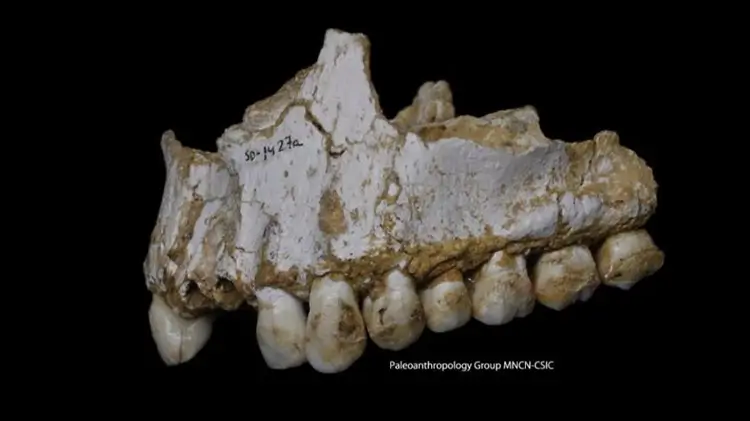
Интересно и другое. Команде Вейриха также удалось полностью секвенировать один конкретный микроб под названием Methanobrevibacter oralis, у которого отсутствуют гены для сопротивления антисептикам и переваривания мальтозы. Со временем этот микроб приспособился к гигиене и изменил рацион питания человека. Команда Вейриха подсчитала, что штамм неандертальца отделился от штамма, обнаруженного у современных людей, между 112 000 и 143 000 лет назад, что позволяет предположить, что эти две группы обменивались Methanobrevibacter, вероятно, когда занимались сексом.
Почему группы неандертальцев, живущих на юге, стали вегетарианцами? Вероятно, потому что они могут. Там было гораздо более дружелюбное окружение и более мягкий климат с большим количеством источников пищи. Неандертальцы-веганы - это не моральная группа людей, которые решили перейти на растительную основу в качестве личного выбора. Это выбор для выживания. Если рядом с нашей пещерой растет что-то, что мы можем съесть, разве мы пойдем на охоту? Просто применив оптимальные кормовые стратегии, мы получим ответ. Неандертальцы анатомически были скорее вегетарианцами, чем хищниками, но в северных районах во время ледникового периода климат был суровым, и им пришлось адаптироваться, что заняло некоторое время. И неандертальцы, и современные люди произошли от Homo erectus. Homo erectus был травоядным видом. Самые ранние известные волны миграции Homo Erectus в Евразию датируются 1,81 млн. лет назад. Молекулярно-часовые генетические исследования позволили установить время расхождения линий неандертальца и современного человека от 800 тыс. до 400 тыс. лет назад. По этой причине большинство ученых считают, что неандертальцы произошли от Homo heidelbergensis. Популяция Homo erectus, оставшаяся в Африке, должна была эволюционировать через промежуточный Homo rhodesiensis в анатомически современного человека к 300 тыс. лет назад или раньше.
Неандерталец развивался в Европе, а человек - в Африке, и между ними есть небольшие физиологические различия. У Homo sapiens бочкообразная грудная клетка и узкий таз. Неандертальцы имели колоколообразное туловище и более широкий таз. Традиционное объяснение заключается в том, что неандертальцам требовалось больше кислорода из-за более холодного климата, поэтому их тело выросло, чтобы вместить более крупную дыхательную систему. Но это неверно. Живя в холодном климате Евразии 300-30 тыс. лет назад, неандертальцы селились в таких местах, как Полярный Урал и Южная Сибирь. В условиях тундровой зимы, когда растительная пища отсутствовала, мясо животных, состоящее из жира и белка, оставалось единственным источником энергии. Хотя жир легче усваивается, в холодных условиях его не хватает. Хищные животные за зиму сжигали свои жировые запасы и становились гораздо более худыми. Отсюда следует вывод, что неандертальцы должны были потреблять большое количество животного белка.
К белкам предъявляются огромные требования на почки и печень, чтобы вывести часть токсичных побочных продуктов, образующихся при сжигании белка для получения энергии. Потолок белка в рационе человека составляет от 35 до 50 процентов калорий. Потребление гораздо большего количества может быть опасным. Организм неандертальцев нашел способ утилизировать больше белка, увеличив печень и почки. Грудь и таз также расширились, чтобы вместить эти увеличенные органы, что придало им особый вид. Если мы сегодня посмотрим на инуитов, то в их рационе порой присутствует только мясо и ничего больше, и у них действительно больше печень и почки и длиннее ребра, чем у обычных европейцев. Чтобы выжить в условиях жирового голода, неандертальцы, несомненно, также специализировались на охоте на массивных животных, таких как мамонты. Они дольше сохраняют жир в плохих условиях и требуют меньше энергии и скорости для убийства, чем более мелкая и быстрая добыча. Мамонты слишком велики, чтобы убежать или скрыться, и нам достаточно убить одного, чтобы пировать месяцами, потому что мясо не портится при постоянных отрицательных температурах. Но когда эти мега-звери исчезли, неандертальцы, вероятно, пытались преследовать более мелкую и быструю добычу. В южной части Испании, например, они пошли по старому веганскому пути.
Что все это говорит нам о нас? За тысячелетия жизни в северном климате ледникового периода мы не смогли приспособиться к рациону, в котором в той или иной степени присутствовало мясо. Мы эволюционировали в Африке из вегетарианской линии, насчитывающей 60 миллионов лет. Современные люди впервые покинули Африку 100 000 лет назад в ходе серии медленных миграционных волн и прибыли в Южную Европу около 80 000-90 000 лет назад.
Таким образом, что же такое настоящая палеодиета?
Ссылки:
Отрывки, выбранные из книги: Покимица, Милош. Стать веганом? Обзор науки, часть 1. Киндл эд., Amazon, 2018.
Похожие Записи
У вас есть какие-либо вопросы о питании и здоровье?
Я хотел бы услышать ваше мнение и ответить на них в моем следующем посте. Я ценю ваш вклад и мнение и с нетерпением жду вашего скорого ответа. Я также приглашаю вас следовать за нами на Facebook, Instagram и Pinterest для получения дополнительной информации о диетах, питании и здоровье. Там можно оставить комментарий и пообщаться с другими приверженцами здорового образа жизни, поделиться своими советами и опытом, а также получить поддержку и ободрение от нашей команды и сообщества.
Я надеюсь, что эта статья была для вас познавательной и приятной и что вы готовы применить полученные знания. Если эта статья оказалась полезной, пожалуйста поделиться с друзьями и родственниками, которым это может быть полезно. Никогда не знаешь, кому может понадобиться совет и поддержка на пути к здоровью.
– Вам Также Может Понравиться –

Узнайте о Питании
Милош Покимица - доктор естественной медицины, клинический диетолог, автор статей о здоровье и питании и консультант по вопросам питания. Автор серии книг Стать веганом? Обзор науки, он также управляет веб - сайтом natural health GoVeganWay.com
Медицинский Отказ от Ответственности
GoVeganWay.com предлагает вам обзоры последних исследований, связанных с питанием и здоровьем. Предоставленная информация представляет собой личное мнение автора и не предназначена и не подразумевается в качестве замены профессиональной медицинской консультации, диагностики или лечения. Предоставленная информация предназначена исключительно для информационных целей и не предназначена для замены консультации, диагностики и/или лечения у квалифицированного врача или поставщика медицинских услуг.НИКОГДА НЕ ПРЕНЕБРЕГАЙТЕ ПРОФЕССИОНАЛЬНЫМИ МЕДИЦИНСКИМИ СОВЕТАМИ И НЕ ОТКЛАДЫВАЙТЕ ОБРАЩЕНИЕ ЗА МЕДИЦИНСКОЙ ПОМОЩЬЮ ИЗ-ЗА ТОГО, ЧТО ВЫ ЧТО-ТО ПРОЧИТАЛИ Или ПОЛУЧИЛИ ДОСТУП Через GoVeganWay.com
НИКОГДА НЕ МЕНЯЙТЕ ОБРАЗ ЖИЗНИ Или КАКИЕ-ЛИБО ИЗМЕНЕНИЯ ВООБЩЕ ВСЛЕДСТВИЕ ТОГО, ЧТО ВЫ ПРОЧИТАЛИ В GoVeganWay.com ДО КОНСУЛЬТАЦИИ С ЛИЦЕНЗИРОВАННЫМ ПРАКТИКУЮЩИМ ВРАЧОМ.
В случае неотложной медицинской помощи немедленно позвоните врачу или 911. GoVeganWay.com не рекомендует и не одобряет какие-либо конкретные группы, организации, тесты, врачей, продукты, процедуры, мнения или другую информацию, которая может быть упомянута внутри.
Выбор редактора –
Милош Покимица — автор статей о здоровье и питании, консультант по вопросам диетологии. Автор серии книг Стать веганом? Обзор науки, он также управляет веб - сайтом natural health GoVeganWay.com
Последние статьи -
Главные Новости Эдравоохранения — ScienceDaily
- The overlooked nutrition risk of Ozempic and Wegovyon Февраль 4, 2026
Popular weight-loss drugs like Ozempic and Wegovy can dramatically curb appetite, but experts warn many users are flying blind when it comes to nutrition. New research suggests people taking these medications may not be getting enough guidance on protein, vitamins, and overall diet quality, increasing the risk of muscle loss and nutrient deficiencies.
- A 25-year study found an unexpected link between cheese and dementiaon Февраль 4, 2026
A massive Swedish study tracking nearly 28,000 people for 25 years found an unexpected link between full-fat dairy and brain health. Among adults without a genetic risk for Alzheimer’s, eating more full-fat cheese was associated with a noticeably lower risk of developing the disease, while higher cream intake was tied to reduced dementia risk overall. The findings challenge decades of low-fat dietary advice but come with important caveats.
- MIT’s new brain tool could finally explain consciousnesson Февраль 4, 2026
Scientists still don’t know how the brain turns physical activity into thoughts, feelings, and awareness—but a powerful new tool may help crack the mystery. Researchers at MIT are exploring transcranial focused ultrasound, a noninvasive technology that can precisely stimulate deep regions of the brain that were previously off-limits. In a new “roadmap” paper, they explain how this method could finally let scientists test cause-and-effect in consciousness research, not just observe […]
- Why heart disease risk in type 2 diabetes looks different for men and womenon Февраль 4, 2026
Scientists are digging into why heart disease risk in type 2 diabetes differs between men and women—and sex hormones may be part of the story. In a large Johns Hopkins study, men with higher testosterone had lower heart disease risk, while rising estradiol levels were linked to higher risk. These hormone effects were not seen in women. The results point toward more personalized approaches to heart disease prevention in diabetes.
- Sound machines might be making your sleep worseon Февраль 4, 2026
Sound machines may not be the sleep saviors many believe. Researchers found that pink noise significantly reduced REM sleep, while simple earplugs did a better job protecting deep, restorative sleep from traffic noise. When pink noise was combined with outside noise, sleep quality dropped even further. The results suggest that popular “sleep sounds” could be doing more harm than good—particularly for kids.
- This unexpected plant discovery could change how drugs are madeon Февраль 3, 2026
Plants make chemical weapons to protect themselves, and many of these compounds have become vital to human medicine. Researchers found that one powerful plant chemical is produced using a gene that looks surprisingly bacterial. This suggests plants reuse microbial tools to invent new chemistry. The insight could help scientists discover new drugs and produce them more sustainably.
- A hidden cellular process may drive aging and diseaseon Февраль 3, 2026
As we age, our cells don’t just wear down—they reorganize. Researchers found that cells actively remodel a key structure called the endoplasmic reticulum, reducing protein-producing regions while preserving fat-related ones. This process, driven by ER-phagy, is tied to lifespan and healthy aging. Because these changes happen early, they could help trigger later disease—or offer a chance to stop it.
Опубликованный, #веганская диета –
- Diet type and the oral microbiomeon Февраль 2, 2026
CONCLUSION: The diet-oral microbiome-systemic inflammation axis is bidirectional and clinically relevant. Understanding both direct ecological regulation and indirect metabolic effects is essential to support precision nutrition strategies aimed at maintaining oral microbial balance and systemic inflammatory risk mitigation.
- Consensus document on healthy lifestyleson Январь 22, 2026
Proteins are a group of macronutrients that are vital to our lives, as they perform various functions, including structural, defensive and catalytic. An intake of 1.0-1.2 g/kg/body weight per day would be sufficient to meet our needs. Carbohydrate requirements constitute 50 % of the total caloric value and should be obtained mainly in the form of complex carbohydrates. In addition, a daily intake of both soluble and insoluble fiber is necessary. Regular consumption of extra virgin olive oil […]
- Vitamin B12 and D status in long-term vegetarians: Impact of diet duration and subtypes in Beijing, Chinaon Январь 21, 2026
CONCLUSIONS: This study reveals a dual challenge among Beijing long-term vegetarians: vitamin B12 deficiency was strongly associated with the degree of exclusion of animal products from the diet (veganism), while vitamin D deficiency was highly prevalent and worsened with longer diet duration. The near-universal vitamin D deficiency observed in this study suggests that, in the Beijing context, the risk may extend beyond dietary choice, potentially reflecting regional environmental factors;…
- Nutritional evaluation of duty meals provided to riot police forces in Germanyon Январь 13, 2026
Background: The primary role of the German riot police is maintaining internal security. Due to challenging working conditions, riot police forces face an elevated risk of various diseases. During duty, forces are provided with meals. A balanced diet can reduce the risk of some of these diseases and contribute to health-promoting working conditions. Aim: First evaluation of the nutritional quality of duty meals in Germany based on German Nutrition Society recommendations (DGE). Methods: In…
- Iodineon Январь 1, 2006
Iodine is an essential trace nutrient for all infants that is a normal component of breastmilk. Infant requirements are estimated to be 15 mcg/kg daily in full-term infants and 30 mcg/kg daily in preterm infants.[1] Breastmilk iodine concentration correlates well with maternal urinary iodine concentration and may be a useful index of iodine sufficiency in infants under 2 years of age, but there is no clear agreement on a value that indicates iodine sufficiency, and may not correlate with […]
Случайные сообщения –
Популярные сообщения -
Последние новости от PubMed, #растительная диета –
- From paddy soil to dining table: biological biofortification of rice with zincby Lei Huang on Февраль 4, 2026
One-third of paddy soils are globally deficient in zinc (Zn) and 40% of Zn loss in the procession from brown rice to polished rice, which results in the global issue of hidden hunger, e.g., the micronutrient deficiencies in the rice-based population of developing countries. In the recent decades, biofortification of cereal food crops with Zn has emerged as a promising solution. Herein, we comprehensively reviewed the entire process of Zn in paddy soil to human diet, including the regulatory…
- Molecular Characterization of Tobacco Necrosis Virus A Variants Identified in Sugarbeet Rootsby Alyssa Flobinus on Февраль 3, 2026
Sugarbeet provides an important source of sucrose; a stable, environmentally safe, and low-cost staple in the human diet. Viral diseases arising in sugarbeet ultimately impact sugar content, which translates to financial losses for growers. To manage diseases and prevent such losses from occurring, it is essential to characterize viruses responsible for disease. Recently, our laboratory identified a tobacco necrosis virus A variant named Beta vulgaris alphanecrovirus 1 (BvANV-1) in sugarbeet…
- Nutrition in early life interacts with genetic risk to influence preadult behaviour in the Raine Studyby Lars Meinertz Byg on Февраль 3, 2026
CONCLUSIONS: Nutrition in early life and psychiatric genetic risk may interact to determine lasting child behaviour. Contrary to our hypothesis, we find dietary benefits in individuals with lower ADHD PGS, necessitating replication. We also highlight the possibility of including genetics in early nutrition intervention trials for causal inference.
- Effect of the gut microbiota on insect reproduction: mechanisms and biotechnological prospectsby Dilawar Abbas on Февраль 2, 2026
The insect gut microbiota functions as a multifunctional symbiotic system that plays a central role in host reproduction. Through the production of bioactive metabolites, gut microbes interact with host hormonal pathways, immune signaling, and molecular regulatory networks, thereby shaping reproductive physiology and fitness. This review summarizes recent advances in understanding how gut microbiota regulate insect reproduction. Accumulating evidence demonstrates that microbial metabolites…
- Rationale and design of a parallel randomised trial of a plant-based intensive lifestyle intervention for diabetes remission: The REmission of diabetes using a PlAnt-based weight loss InteRvention…by Brighid McKay on Февраль 2, 2026
CONCLUSIONS: This trial will provide high-quality clinical evidence on the use of plant-based ILIs to address the epidemics of obesity and diabetes to inform public health policies and programs in Canada and beyond.
- Diet type and the oral microbiomeby Daniel Betancur on Февраль 2, 2026
CONCLUSION: The diet-oral microbiome-systemic inflammation axis is bidirectional and clinically relevant. Understanding both direct ecological regulation and indirect metabolic effects is essential to support precision nutrition strategies aimed at maintaining oral microbial balance and systemic inflammatory risk mitigation.
